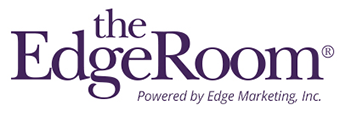If you’re like most people, doing media interviews isn’t on your list of favorite things to do. With the right mindset, though, interviews don’t have to be a painful experience.
Of course, it’s important to do your research to learn about the media representative and their publication, so you can go into the interview with a well-thought-out message you want to present to the readership audience; however, preparation isn’t the only trick to showing the world that you’re an expert in the field. It’s equally important to exude confidence and professionalism, and show that you’re taking the interview seriously.
When it comes to interviews, some basic etiquette will go a long way.
The following tips will help ensure that you’re putting your best foot forward on your next interview.
- Speak slowly. It’s easy to start speaking too quickly when you’re nervous. If you know you tend to be a fast-talker, make a point of slowing down your words when speaking to your interviewer. Not only will you make sure you’re getting your point across, you’ll also seem more confident while doing it.
- Don’t mumble. In addition to speaking slowly, it’s important to speak clearly. When you mumble your way through an interview, you’ll seem nervous, unconfident, unprepared, or all the above. Be sure to enunciate clearly when answering questions.
- Don’t ramble. While you rarely want to just give one-word answers, rambling is another common side effect of nervousness. Silence may seem uncomfortable, but there’s no need to fill the space with unnecessary words. Once you’ve said what you want to say on a given point, stop speaking so your interviewer can go on to his or her next question.
- Don’t fidget. If you’re doing the interview live or via webcam, fidgeting is another signal that you’re nervous and lack confidence. If you know you tend to fidget in interviews (or in general), remove possible temptations that might make you unconsciously do so: Don’t wear uncomfortable clothes or dangling jewelry, and pull your hair back if you have a habit of playing with it. Settle into a comfortable, attentive position and stick with it.
- Watch out for “uh”s and “um”s. Filter your responses of these sounds and other filler words. If you feel that you are at risk of using these excessively, do a few mock interviews and record yourself. Listen to your responses closely, and practice again and again until you no longer fall back on these filler words.
- Make sure your connection is good. These days, many interviews take place online or over the phone rather than in person. If you have an interview coming up, make sure you have a quiet place to take the interview where your connection is strong, and test the connection with enough time to spare if you need to adjust. The last thing you want is to be disconnected in the middle of an important interview.
- Avoid speaker phone. Putting the phone on speaker is second-nature to many people at this point, but it’s a bad idea when you’re on an interview. Not only does it make your connection less clear; it opens up the possibility of unexpected interruptions. You don’t want to have to explain odd sounds or have to repeat yourself because your interviewer can’t hear you.
- Don’t eat while talking. We live in a multitasking world, and it may be tempting to try to squeeze in an interview over your lunch break. While that may be fine timing-wise, make sure your lunch and interview don’t actually overlap. Even if your interviewers can’t see you, they will definitely be able to tell if you’re eating on the other end of the line, which will call into question how seriously you’re taking the interview.
- Ask questions. If you don’t understand something your interviewer asks you, be sure to get clarification. It’s wrong to believe that asking questions makes you sound dumb, and asking for clarification is far better than answering the wrong question.
- Ask if they need anything repeated. You want to leave an interview feeling confident that you’ve answered all the questions and given your interviewer everything that they wanted. Asking if they need any more information or need anything clarified before you wrap up is the best way to ensure that they have the right information for the article.
Interviewing doesn’t have to be a stressful experience. By following basic etiquette, you’ll feel more relaxed, come across as confident, and wow the world.




